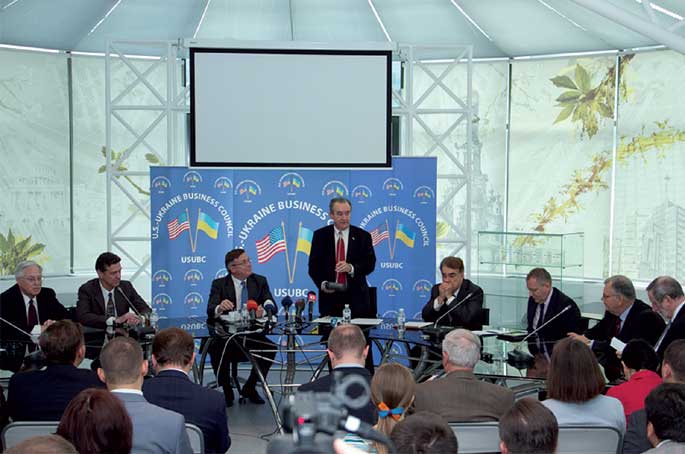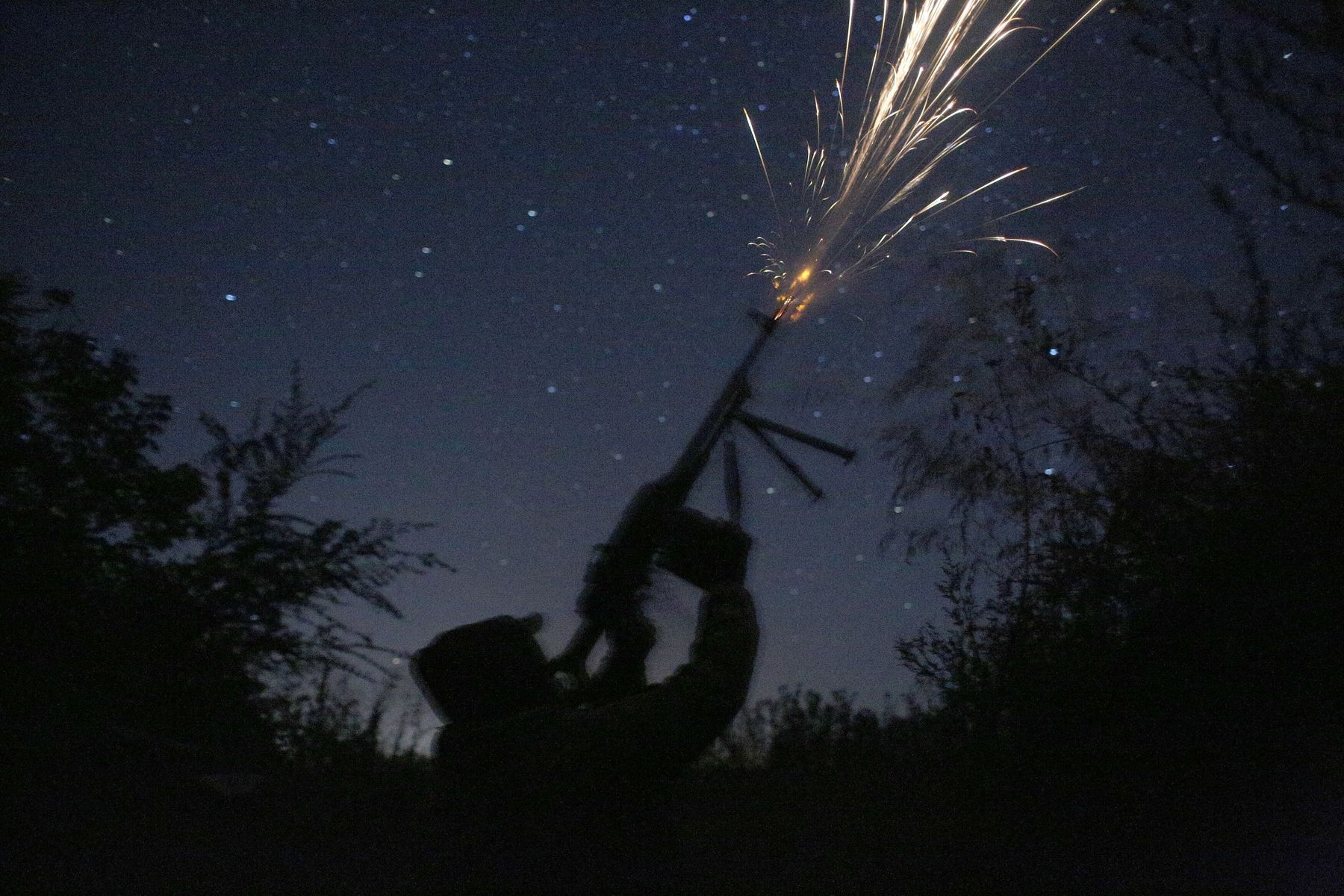The conflict in Ukraine has already won: It's called Monsanto.
- The Economist calls Ukraine “Eastern Greece” because the World Bank and the International Monetary Fund have imposed a similar recipe in the face of the crisis: the brutal cuts in social spending to the detriment of the vulgo and the making available to the multinationals of the nation’s natural resources. Behind the war there is always money.

Tough times for the citizens of Ukraine, according to the budgets approved by the Kiev Parliament in early March. In social policies, cuts in all classes. In a country where inflation officially, some experts say, is much higher, at 28%, pensions will fall by 15%. In the same vein in all budget headings.
The Economist Neoliberalism Bible explains in his chronicle “The New Greece in the East” that the loan that the International Monetary Fund (IMF) has signed with the Kiev government predicts that between 2013 and 2017 the state’s social spending – unemployment subsidies, salaries of people with disabilities, etc. – has been affected by 30%.
In 2013, Ukrainian President Viktor Ianukovich resigned from the IMF’s EUR 15 billion loan because he preferred a EUR 13.6 billion discount that Russia had promised him at gas prices. But that's a thing of the past. Following the collapse of Ianukovich, the pact with the IMF is underway, with those EUR 15 billion in the short term, and in the long term, EUR 36 billion more is pledged. In exchange for what?
Because the state has to lose weight, that is to say lose its capacity to spend, it also has to cut aid to the public company Naftogaz. To the detriment of the pedestrian, the gas that each household uses to heat and cook over the coming weeks will have to pay twice or more than it costs.
Protests by workers and citizens in Ukraine against the cutbacks have not come to the ears of the Westerners in the wake of the Donbass war. One of the largest was recorded in Parliament on 29 December when the treaty with the IMF was being discussed.
According to some small media, the announced measures were denounced by the workers’ organisations: taxes of 5 to 10% for all imports, tax of 15% for pensioners’ pensions, new tax on households over 60 square metres, reduction of teachers’ and doctors’ jobs, non-updating of salaries and pensions on the basis of inflation, closure of coal mines in eastern counties, privatization of roads and railways...
In this black landscape, the only beneficiaries are the military and the oligarchs: military spending has risen from 1% to 5% of GDP, and the employers have fallen from 42% to 16% on workers’ salaries. However, the pact with the Ukrainian IMF, in addition to the social cuts, has another component that will put upside down the country’s most precious asset.
With 32 million hectares devastated, Ukraine has the largest field in Europe, after Russia. Its famous chernozem (black land) allows it to be European champion in maize production and export, second in sunflower production, the world's leading exporter of sunflower oil, and leader in wheat and barley.
Liberalise the sale of land
Agriculture has changed dramatically in Ukraine since 1991. After the fall of the Soviet Union, State land, managed through large mattresses, was privatized, allocating an area of approximately 4 hectares to each baserritarra. Since then, however, real land ownership and all agricultural activity in general has been increasingly concentrated in fewer hands and larger companies.
The cravings of these rich lands were and are found by the great Western corporations. That's why corporations in the agro-industrial industry are in the middle of the IMF's deal with Kiev.
The Oakland Institute of California, which closely monitors corporations, has explained this aspect of the crisis in Ukraine in detail. Oakland, among other more extensive documents, presents the following summary made by Elisabet Fraser: “The winners and losers of Ukraine’s austerity agenda” (on the austerity agenda in Ukraine, winners and losers).
“The IMF and the World Bank, Fraser says, have made an effort for Ukraine to eliminate the moratorium on the sale of agricultural land. In March of last year, Heinz Strubenhoff, head of the World Bank for agro-industry investments, said the time had come to start talking about land privatization and urged Ukraine to ‘start preparing everything to allow cultivation land sales’, which means foreign investors.” Since the disbanding of collective farms and the distribution of State land, the ban on sale has been de facto, as motorcycles.
Another of the measures requested from the Government of Ukraine is the elimination of the ban on GM crops. Knowledge of the strategy of the agro-industrial industry in the world will not be surprising, as they have globalized in a single package the purchase or theft of land, the industrialization of farms and the spread of genetically modified crops.
Canadian researcher Joyce Nelson has shown how this has been done in Ukraine. Among others, “Sultans of Sleazy: The author of the book “PR & the Media” (The Lords of Corruption: Public Relations and Media) has published in the Counterpounch advanced space the book “Ukraine opens up for Monsanto, land grabs and GMOs” (The doors of Ukraine are open to Monsanto, land theft and transgenic).
Before lifting the ban, in 2013, Monsanto invested EUR 140 million in a transgenic seed company located in eastern Ukraine. On their side, the associations of large landowners in Ukraine have previously worked in the lobby sector and then they have done so. Under his protection, Monsanto launched the Grain Basket of the Future project.
Joyce Nelson has reported that the lobbyging of the multinationals has had a special relevance in the field of the US-Ukraine Business Council (USA-Ukraine Business Association). It involves the political leaders of both countries, the major firms of the agro-American industry and the companies Monsanto, DuPont, Syngenta, Bayer and Biodow, the world's leading chemists.
Written by Seeking Alpha, a space that advises stock investors: “Monsanto’s positions will win with the crisis in Ukraine (...) To get out of the crisis Ukraine will have to use its most precious resource and Monsanto is well placed to take advantage of it.” Here are the advantages of a good war.
Ukrainako gerra egunetik egunera aldatzen doa. 2014an independentzia aldarrikatu baina linboan geratu ziren Donetsk eta Luhanskeko herri errepubliken independentziak onartu eta guda hasi zuen Errusiak. Mendebaldeak zigor ekonomikoen bidez erantzun du Ukraina ekialdeko... [+]
Ukraina eta Errusia historiak lotutako bi herrialde izan dira mende luzez. Azken ehun urteetan, iraultzak eta mundu gerrak bizi izan dituzte elkarrekin eta, orain, elkarren aurka. Data nagusienak laburbildu ditugu hemen.
Egun hauetan Ukrainan gertatzen ari den gatazka militarra ulertzeko gako nagusietako bat Donbassen azken zortzi urteotan izandako gerra da. Gerra piztu zenean, Ibai Trebiño eta Mikel Arregi ARGIAko kolaboratzaileek Ukraina, Krimea eta Donbassen jaso zituzten lehen eskuko... [+]
Petrolio eta gasaren prezioak gora egiten ari dira, Ukraina eta Errusiaren arteko gerra arriskuak munduko horniduran eragin dezakeenaren beldurrez. Nazioartean erreferentzia den Brendt gordin upelaren prezioak otsailaren 22an azken zazpi urteetako gorengo preziora iritsi zen:... [+]
2021eko urriaren 30ean The Washington Post egunkariak argitaratutako artikulu batek ireki zuen bidea. Testuan iradoki zuten Errusia Ukrainaren inbasioa prestatzen ari zela. Ordutik zurrumurrua etengabe elikatu eta garatu dute AEBetako Gobernutik, eskala handiko inbasioa berehala... [+]
Errusiako presidente Vladimir Putinek Donbassko Donetsk eta Luhanskeko herri errepubliken independentzia aitortu du otsailaren 21ean eta Errusiako Parlamentuak ondorengo orduetan berretsiko du Putinen erabakia. Honek dekretuan jaso du armada "bake eginkizunetarako"... [+]
Errusiako lehen ministro Vladimir Putinek gaur erabakiko du Donbasseko herri errepubliken independentziari buruz. AEBek hainbeste hauspotu duten Errusiaren inbasiorik ez da gertatu, baina Ukrainan tentsioak igotzen jarraitzen du. Asteburuan Ukrainako armadak Donbass eskualde... [+]























